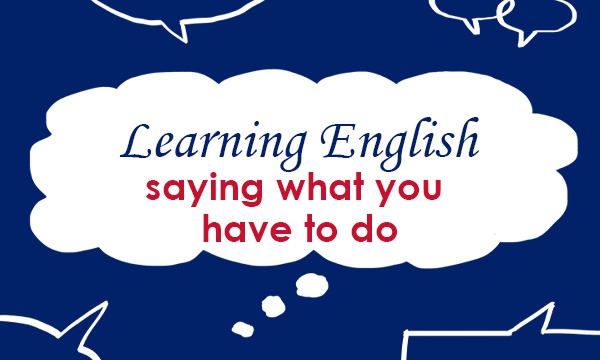
To tell someone that it is very important that you do something, use I have to … or I need to …
I have to call my mother.
I really have to finish this piece of work today.
You don’t have to work till eight o’clock every evening.
I need to get some money out.
I need to cancel that order.
We need to book our flights.
To ask what someone has to do, use Do you have to …?
Do you have to pay for the work yourself?
Do you have to tell them?
Another way of saying that it is important that you do something is I must …
This is used especially when it is very important that you do something.
I must let Vincenzo know.
We must find someone else to do the work.
If something is important, you could use It is important for me to …
It is important for me to pass this exam.
It is important for me to work as hard as possible.
Use I should … or I ought to … to say what is the right thing to do, even if you are not going to do it. Note that there is no ‘to’ after I should.
I should call Sergei and let him know.
I really should go to the gym.
We really should invite both sets of parents.
I ought to take that radio back.
I ought to invite Sandro.
We ought to pay Walkers for the work they’ve done.
Come back for more blogs on using English in everyday situations: https://blog.collinsdictionary.com/language-learners/learning-english/
All opinions expressed on this blog are those of the individual writers, and do not necessarily reflect the opinions or policies of Collins, or its parent company, HarperCollins.



